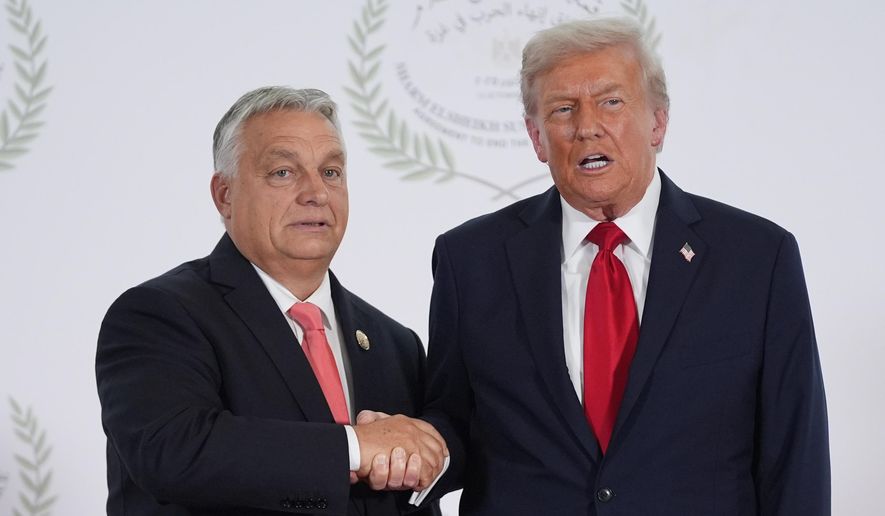A version of this story appeared in the daily Threat Status newsletter from The Washington Times. Click here to receive Threat Status delivered directly to your inbox each weekday.
Hungarian Prime Minister Viktor Orban announced Friday he will ask President Trump for an official exemption from U.S. sanctions on Russian oil during their meeting next week.
The two leaders are set to meet on Nov. 7 in Washington to discuss the future structure of U.S. sanctions on Russian energy, and Mr. Orban is expecting to leave the U.S. having signed a new economic agreement. The meeting is also the first time Mr. Trump has met with the Hungarian prime minister since returning to the White House in January.
In remarks on Friday, Mr. Orban explained that Hungary, as a landlocked nation, is reliant on pipeline networks for its oil, specifically the Druzhba pipeline. The U.S. sanctions, which target Russian oil companies Rosneft and Lukoil, would force Hungary to fill its oil demand.
“We have to make the Americans understand this peculiar situation if we want them to allow exemptions from the American sanctions against Russia,” Mr. Orban said.
Hungary has already begun preparing for possible oil shortages. On Thursday, the Hungarian government proposed a bill that would allow Budapest to designate certain filling stations as “emergency fuel stations” and place them under federal control.
The new bill comes just one day after a massive fire at a Hungarian oil refinery, severely reducing capacity.
Hungary is also looking to avoid upcoming European Union restrictions on Russian oil imports. Earlier this year, nearly all EU energy ministers voted to ban Russian energy imports by 2028.
Hungarian Foreign Minister Péter Szijjártó told The Washington Times in October that the ban is nakedly political and runs counter to common sense.
“If we cut ourselves from the Russian sources, then the remaining infrastructure is not enough, simply, physically, is not enough to supply our demand,” Mr. Szijjártó said. “That’s the reason it has nothing to do with politics, with ideology, nothing. Because with politics and ideology, you cannot heat, you cannot cool, you cannot operate factories. So we think that politics and ideology should be left aside when it comes to energy supplies.”
• Vaughn Cockayne can be reached at vcockayne@washingtontimes.com.




Please read our comment policy before commenting.